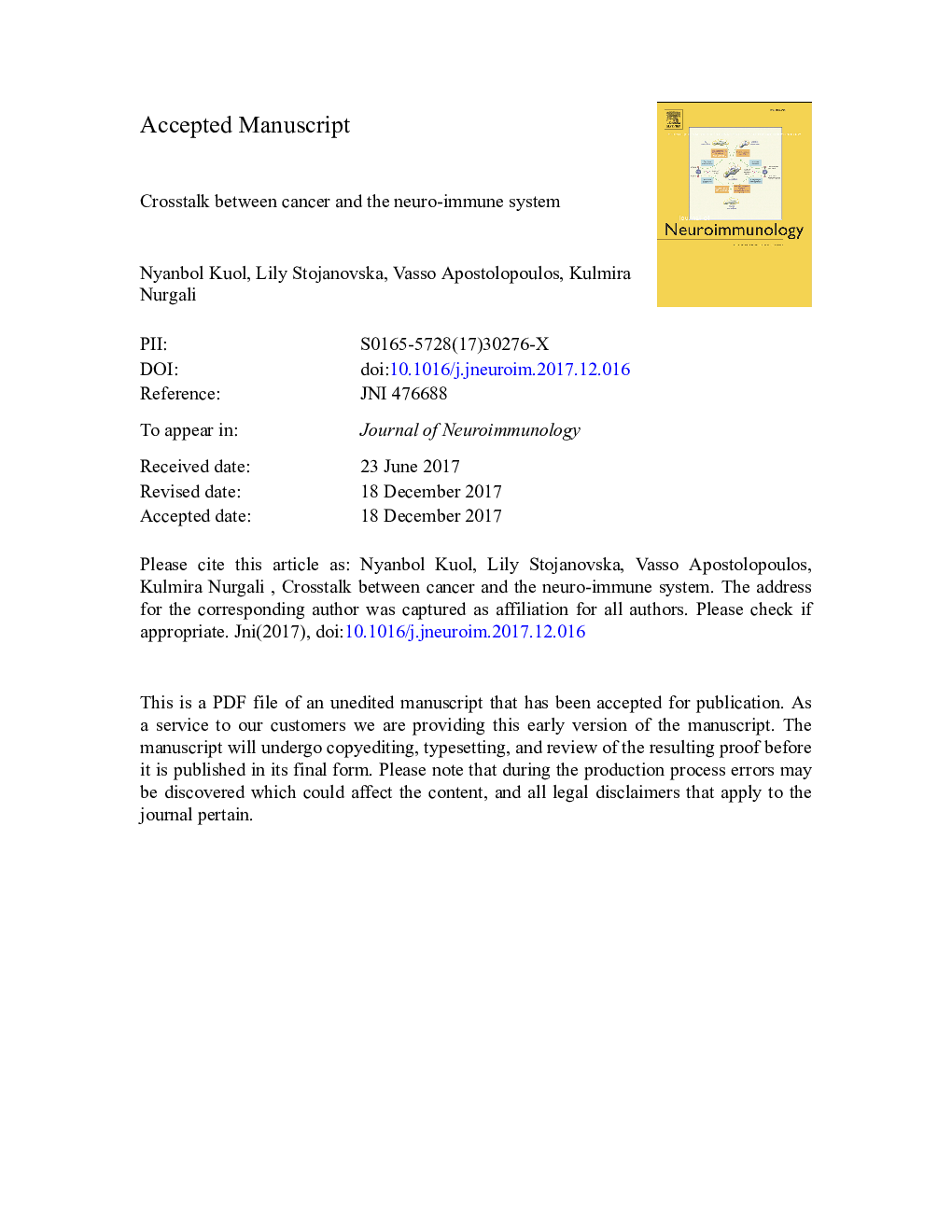| Article ID | Journal | Published Year | Pages | File Type |
|---|---|---|---|---|
| 8685825 | Journal of Neuroimmunology | 2018 | 24 Pages |
Abstract
In the last decade, understanding of cancer initiation and progression has been given much attention with studies mainly focusing on genetic abnormalities. Importantly, cancer cells can influence their microenvironment and bi-directionally communicate with other systems such as the immune system. The nervous system plays a fundamental role in regulating immune responses to a range of disease states including cancer. Its dysfunction influences the progression of cancer. The role of the immune system in tumor progression is of relevance to the nervous system since they can bi-directionally communicate via neurotransmitters and neuropeptides, common receptors, and, cytokines. However, cross-talk between these cells is highly complex in nature, and numerous variations are possible according to the type of cancer involved. The neuro-immune interaction is essential in influencing cancer development and progression.
Keywords
MMPTAMsIFN-gammaMDSCsnAChRsmAChRsCAFMCP-1TNF-alphacAMPCyclic adenosine monophosphateAChAcetylcholineNeurotransmittersinterleukinTILNeuro-immune interactionTumor infiltrating lymphocytestumor necrosis factor alphaCNSDopamineDendritic cellsMyeloid-derived suppressor cellsNatural killer cellsNervous systemcentral nervous systemperipheral nervous systemVascular endothelial growth factorVascular Endothelial Growth Factor (VEGF)Cancer associated fibroblastsmatrix metalloproteinaseSubstance PTumor-associated macrophagesMAITNeuropeptidesmonocyte chemoattractant protein-1PNSInterferon gammaLymph nodeBeta2-adrenergic receptorDopamine receptorMuscarinic acetylcholine receptorsnicotinic acetylcholine receptors
Related Topics
Life Sciences
Immunology and Microbiology
Immunology
Authors
Nyanbol Kuol, Lily Stojanovska, Vasso Apostolopoulos, Kulmira Nurgali,
